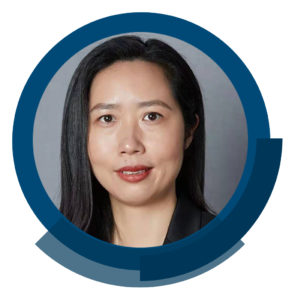Introducing the researchers:
Neelesh C. Reddy obtained his B.Sc. from Deogiri College and M. Sc. from Dr. Babasaheb Ambedkar Marathwada University Aurangabad, Maharashtra, India. For his Ph.D., he joined the research group of Dr. Vishal Rai at the Indian Institute of Science Education and Research Bhopal, India. Neelesh is developing modular chemical technologies for precision engineering of native proteins. Further, he is using the platform for the synthesis of homogeneous antibody-drug conjugates for directed cancer chemotherapeutics.
Rajib Molla obtained his B. Sc. (2016) from West Bengal State University and M. Sc. (2018) from West Bengal State University. At present, he is pursuing his Ph.D. under the supervision of Dr. Vishal Rai at the Indian Institute of Science Education and Research Bhopal. He is applying his experience in organic and organometallic chemistry to develop new chemical methodologies for protein bioconjugation.
Mohan Kumar obtained his B.Sc. (2016) from Lucknow University and M.Sc. (2018) from the National Institute of Technology Manipur, India. In 2019, he joined the research group of Dr. Vishal Rai at the Indian Institute of Science Education and Research Bhopal, India. In his Ph.D., he is developing chemical technologies for the modification of proteins in live cells.
Vishal Rai received his Ph.D. in 2008, working in the area of asymmetric synthesis from the Department of Chemistry, Indian Institute of Technology Bombay (India), under the supervision of Prof. I. N. N. Namboothiri. In 2008, he joined the group of Prof. Andrei Yudin in the Department of Chemistry, University of Toronto (Canada), to work on chemoselective methodologies and peptide macrocycles. Vishal started his independent career in the Department of Chemistry, Indian Institute of Science Education and Research Bhopal (India) as Assistant Professor in 2011 and became Associate Professor in 2017. He is the recipient of Swarnajayanti fellowship, Ramanujan fellowship, and DAE Young Scientist Award. In 2018, he established Plabeltech Private Limited, a company strengthened by the protein labelling technologies developed by his team. His research group is developing chemical technologies for precision engineering of native proteins. Further, they are translating these platforms to enable directed and precision therapeutics.
What inspired your research interests in chemical protein modification?
The knowledge to enable selective modification of native proteins could provide a tremendous boost to the biotechnology and healthcare sectors.
What primary research are you carrying out in the area?
Our group is developing chemical technologies for precision engineering of proteins. We are excited about its potential to empower directed therapeutics and believe that it can enable precision therapeutics with small molecules one day.
How do you hope this review will help and inspire future research in the area?
This review intends to provide a chemist’s perspective of “what, why, and how” in the field of protein bioconjugation.
Read the full article: Chemical methods for modification of proteins
See the other articles showcased in this month’s Editor’s Collection
See all the full articles on our publishing platform












